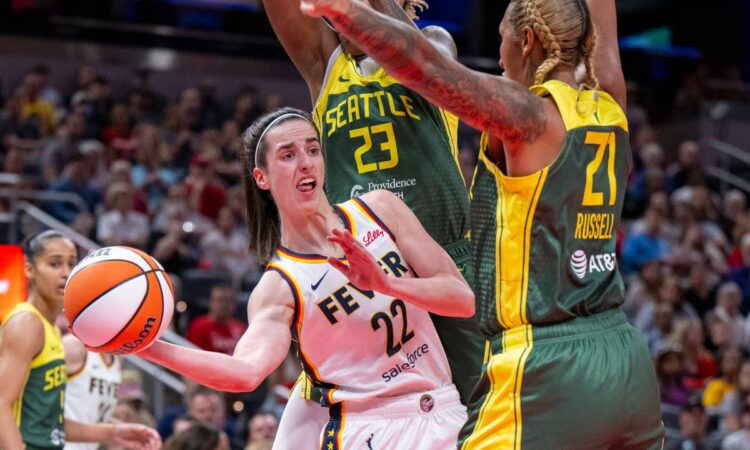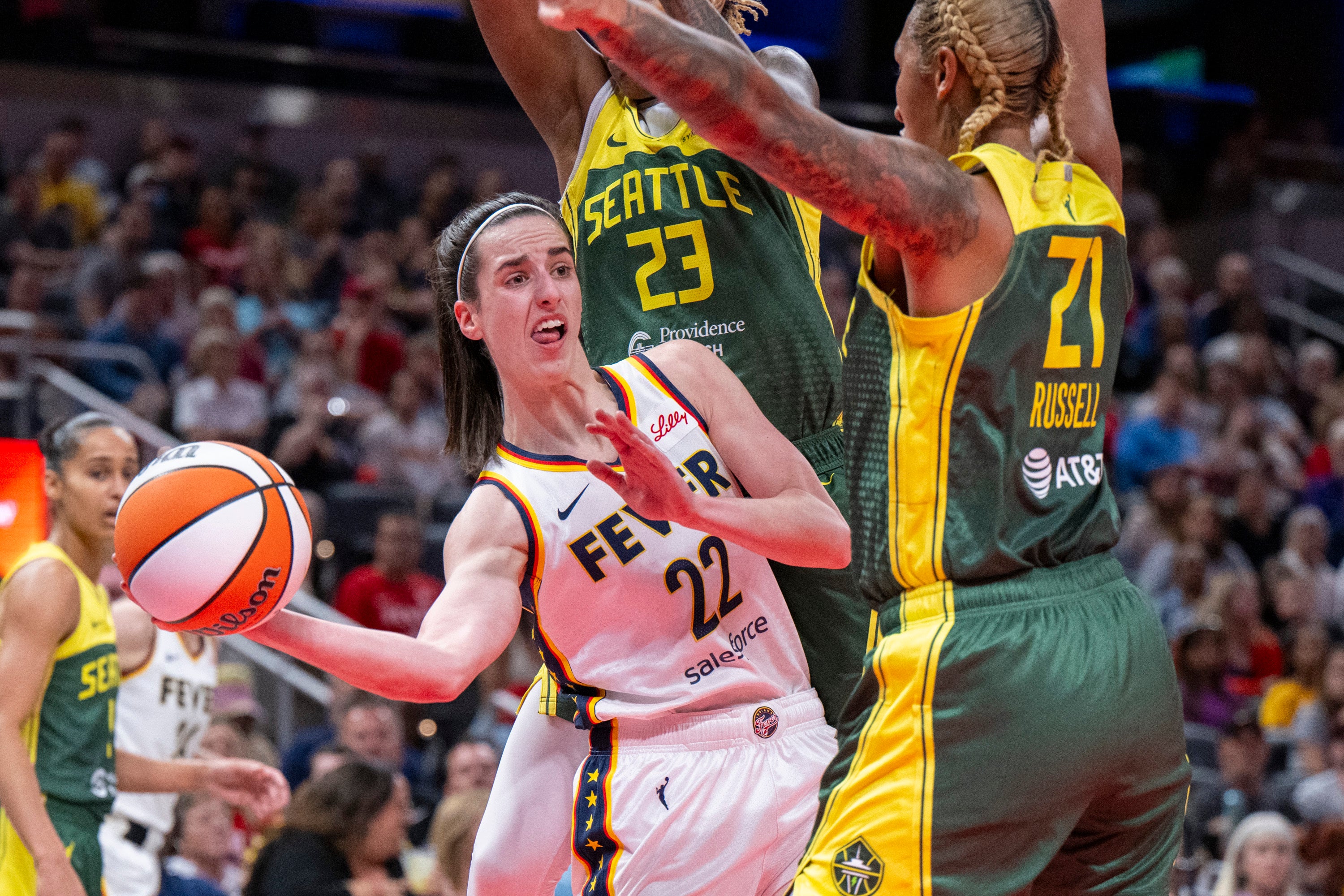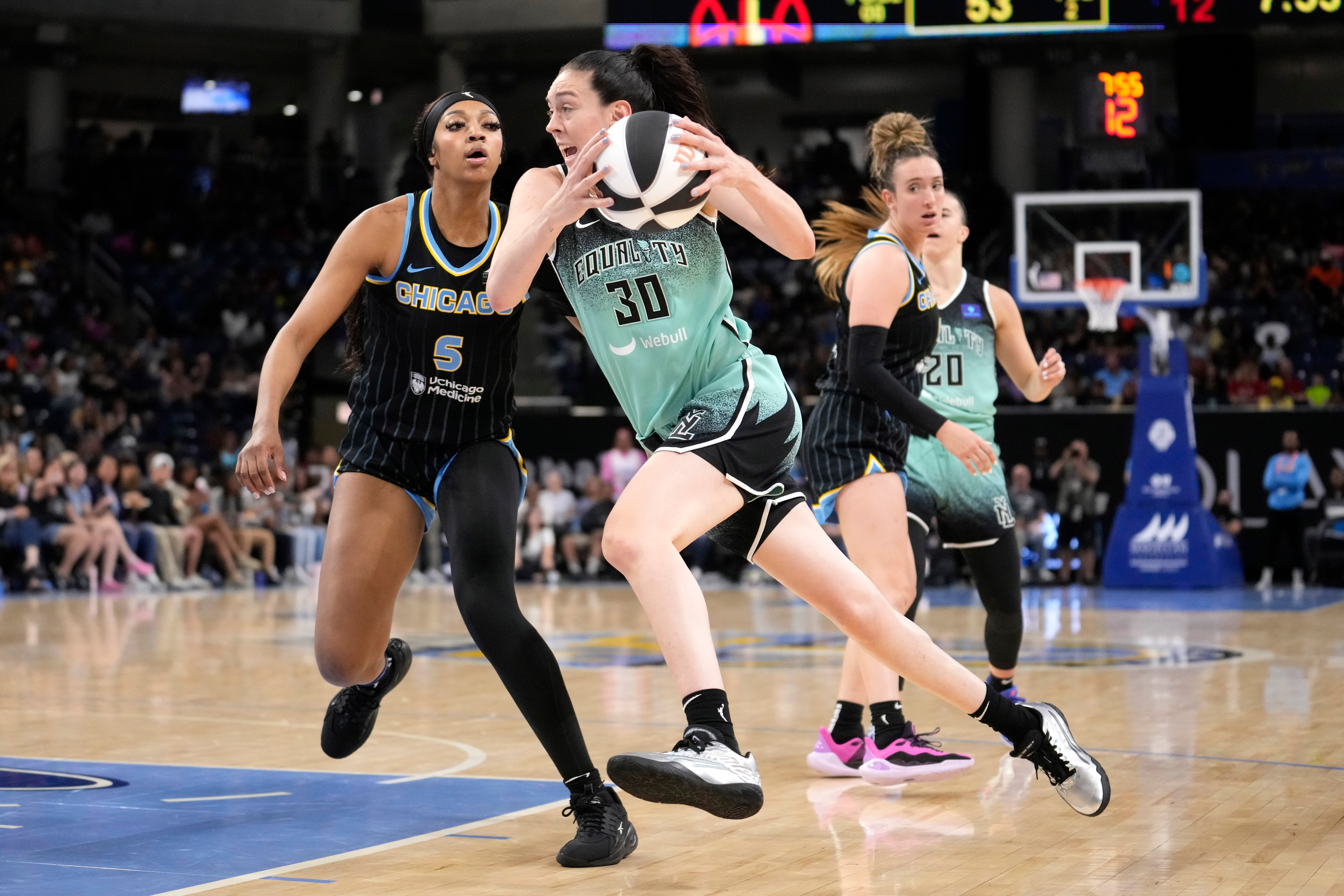WNBA backed by Caitlin Clark continues to hemorrhage money despite record attendance and ratings

Despite the recent explosion of the popularity of the WNBA, led by stars including Caitlin Clark, the league is hemorrhaging money, with losses expected to rise to up to $50m this year, according to a report.
Popular players such as Clark, Angel Reese and Sue Bird, have all earned individual sponsorship deals off the back of their successes, though the WNBA still lags far behind other major US sports leagues in terms of revenue.
NBA Commissioner Adam Silver said in 2018 that the WNBA had lost an average of more than $10m per year since its founding. Sources with knowledge of the figures, who spoke to The Washington Post anonymously, said that that loss was expected to increase five-fold by the end of 2024.
“The truth is, this league would be hard-pressed to exist without the NBA,” one WNBA team executive told The Post. The individual spoke on the condition of anonymity because they were not authorized to speak publicly about the league’s finances.
Last year, the league was valued at between $180m and $200m, according to Bloomberg – a fraction of its male counterpart, the NBA, which earns more than $10bn.

A deal over next year’s broadcast rights to the WNBA, currently valued around $60m, are under negotiation by the NBA, which owns 60 percent of the league.
Bloomberg News and The Wall Street Journal reported the deal for the NBA will be worth more than $7bn per year – but for both leagues. Value figures for the WNBA have not been assigned specifically, meaning the league’s rising popularity may not factor much into how much money it receives in the deal.
Several media executives have predicted that through the deal the WNBA could triple its annual rights revenue to somewhere between $180m and $200m. According to The Post however, the value of the rights will ultimately not be decided by media companies, but by the NBA.
“If you’re not getting a number from the media companies, then you are hanging on to the NBA,” Laura Gentile, an industry consultant and ESPN’s former chief marketing officer, told The Post.

“You’re saying it’s a rounding error in the grand scheme of business. Maybe that’s the case, but it doesn’t help the ecosystem grow. Women’s sports want accountability; they want their growth projections to matter.”
Some believe although the NBA may fairly recognize the increasing value and popularity of the women’s league, it will still be somewhat hamstrung by the ties.
“Even if the money is less, I would rather have independent money, because then you have a real business,” David Samson, the former president of MLB’s Miami Marlins, told The Post.
“If a media company says we value the WNBA at X, that’s a real value of what the WNBA’s rights are. Otherwise, it’s like buying social media followers: perceived value but not real.”







